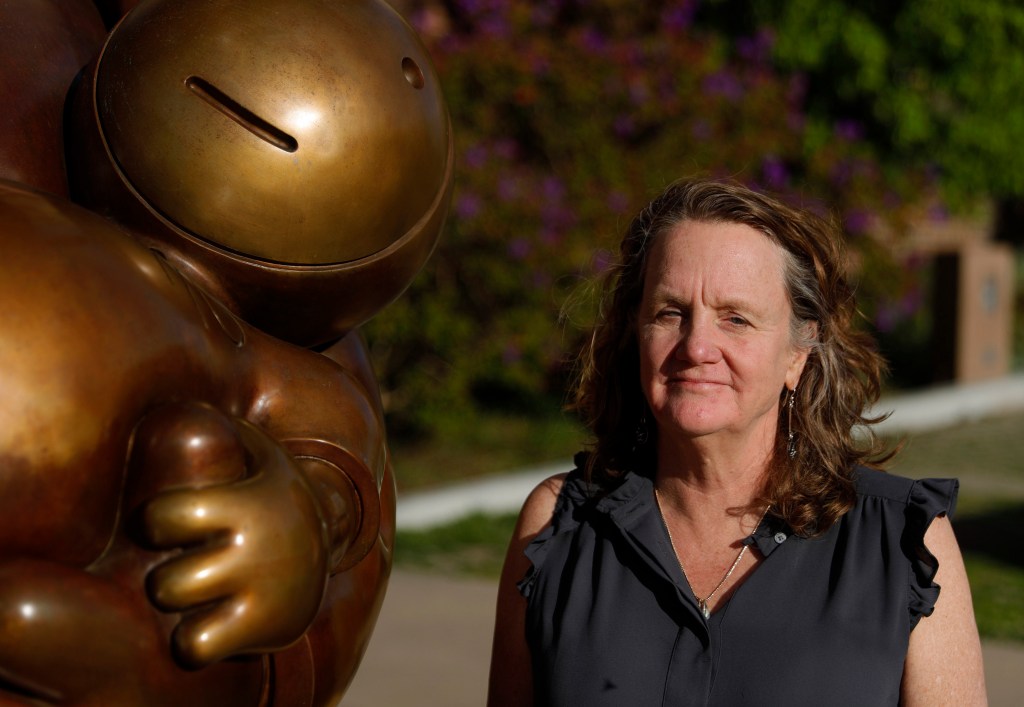The UCSF doctor who made national headlines last year for seeking to provide abortions in federal waters, several miles off the coasts of states that heavily restrict them, is still stuck on land — for now.
Dr. Amy “Meg” Autry’s ambitious plan involved raising tons of money and purchasing a vessel where abortions could be offered to those living near the Gulf Coast who can’t afford to drive or fly elsewhere.
But a year later, despite raising over a million dollars from small donors, she hasn’t been able to secure donations from wealthy benefactors or large foundations wary of investing in an enterprise that would almost immediately enter the legal crosshairs of states with newly restrictive abortion laws.
The initiative — Protecting Reproductive Rights of Women Endangered by State Statutes (PRROWESSS ) — has made little progress, Autry said. She has yet to even acquire a boat.
“With the whole legal situation here in the U.S., we could have a launch one day and be shut down the next day,” said Autry, who is currently based at the UCSF medical center in Fresno, swapping time between there and San Francisco.
The project is one front in a broader push across the country to protect abortion access following the Supreme Court’s dramatic overturn last year of Roe v. Wade which ended nearly a half-century of federal abortion rights.
So far, 24 states have implemented or are on the path to adopting wide restrictions on abortions, with near-total bans enacted in Texas, Alabama, Louisiana and Mississippi, among others, including last week in Indiana.
Hundreds of pregnant individuals have come to California seeking the procedure. Planned Parenthood Mar Monte, a group of affiliated West Coast clinics, reported a 300% increase in out-of-state patients, with hot spots in San Jose, Oakland, Sacramento and Fresno.
Meanwhile, mail-order access to the most widely used abortion drug, mifepristone, is also facing a potential ban that will be reviewed by the Supreme Court after clearing a federal appeals court earlier this month.

Abortions were once previously offered by boat off the coasts of countries with restrictive laws such as Morocco, Portugal, Guatemala and Mexico, the last of which did not decriminalize the practice until 2021. The nonprofit behind that mission, Women on Waves, hasn’t set sail in several years. An offshoot organization, Women on Web, now sends mifepristone and other medications to those who order them online.
PRROWESS, on the other hand, intends to carry out the actual surgical procedure onboard, which Autry sees as critical to ensuring the option remains widely available.
“With surgical abortions, once you do it, it’s done,” she said. “With medication, it’s like going through labor — (the pills) cause your uterus to cramp, and it hurts. But you can do it at home; it’s more discreet. People have different preferences and should be able to make the choice.”
The lack of funding has limited Autry’s own options, forcing her to think minimally about the type of vessel used and how many people would staff it.
Even if her vision came to fruition, the logistical and legal implications are murky: It’s unclear, for instance, how pregnant patients would manage to travel several miles out to sea from the coasts of trigger states, and what consequences would be in store for anyone who helped them return to shore.
Since most state jurisdictions extend offshore by 3 miles — often as many as 9 miles — the abortions would likely be administered in rough seas, with minimal security.
The other aquatic health clinics that exist are operated by the military or robustly staffed relief organizations.
Autry said she has promised her donors that, should her plan fail, all the money raised will be donated to abortion funds in the Gulf states that pay for patients’ travel and lodging. Currently, there is no set deadline for terminating the mission.
One thing is for sure: Autry is only willing to speak publicly because she is still seeking funding. If she ever obtains sufficient money, PRROWESS will “go dark,” she said, in order to steer clear of a legal crackdown.
“All it would take is one very wealthy movie star or philanthropist to say, ‘I’m willing to risk this,’” Autry said, “and we could buy the vessel next week.”
Staff writer Carolyn Stein and the Associated Press contributed to this report.
𝗖𝗿𝗲𝗱𝗶𝘁𝘀, 𝗖𝗼𝗽𝘆𝗿𝗶𝗴𝗵𝘁 & 𝗖𝗼𝘂𝗿𝘁𝗲𝘀𝘆: www.mercurynews.com
𝗙𝗼𝗿 𝗮𝗻𝘆 𝗰𝗼𝗺𝗽𝗹𝗮𝗶𝗻𝘁𝘀 𝗿𝗲𝗴𝗮𝗿𝗱𝗶𝗻𝗴 𝗗𝗠𝗖𝗔,
𝗣𝗹𝗲𝗮𝘀𝗲 𝘀𝗲𝗻𝗱 𝘂𝘀 𝗮𝗻 𝗲𝗺𝗮𝗶𝗹 𝗮𝘁 dmca@enspirers.com


